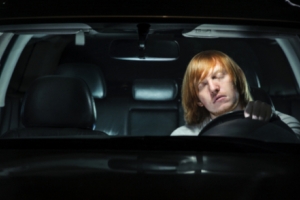Need for drowsy driving laws?

Just two states – Arkansas and New Jersey – have specific laws against drowsy driving.
In those states drowsy driving includes drivers who have not slept in twenty-four hours, as well as drivers who fall asleep at the wheel.
Risks of drowsy driving
Driving while sleepy can be just as dangerous as drunk driving or texting behind the wheel. Drowsiness decreases alertness and reaction time.
Click here to learn more about distracted driving laws in New Hampshire
According to the Governors Highway Safety Association, about 10-20% of large truck and bus crashes in the U.S. involve a tired driver.
However, the National Highway Traffic Safety Institute shows drowsiness is a factor in only about 2% of fatal car crashes.
Policy responses to drowsy driving
In Arkansas and New Jersey, drivers face harsher charges for fatal accidents if the state can prove they have not slept in twenty-four hours.
However, unless a driver admits to being sleep-deprived, it can be hard for law enforcement to prove drowsiness.
Supporters of drowsy driving laws argue the laws still send an important message, even if drowsy drivers are difficult to detect.
There are other ways to decrease drowsy driving: public education campaigns, requiring transportation companies to monitor the breaks of drivers, or even moving school start times later in the morning.
Click here to learn more about the debate over later school start times
There has been no recent proposal to add a drowsy driving law in New Hampshire.
Do you have an opinion on drowsy driving? Share your thoughts in the comments below.











Comments
Login or register to post comments